If you are an owner of a pet rabbit or are considering getting one, then you may be wondering about rabbit baby birth. Rabbit baby birth is a process that can be both exciting and stressful for rabbit owners. In this article, we will provide a comprehensive guide to rabbit baby birth, including information about the gestation period, birthing process, and caring for newborn bunnies. We will also discuss common concerns and questions about rabbit baby birth. By the end of this article, you should have a better understanding of the rabbit baby birth process and how to best care for your new bunnies.
Rabbit Giving Birth for the First Time
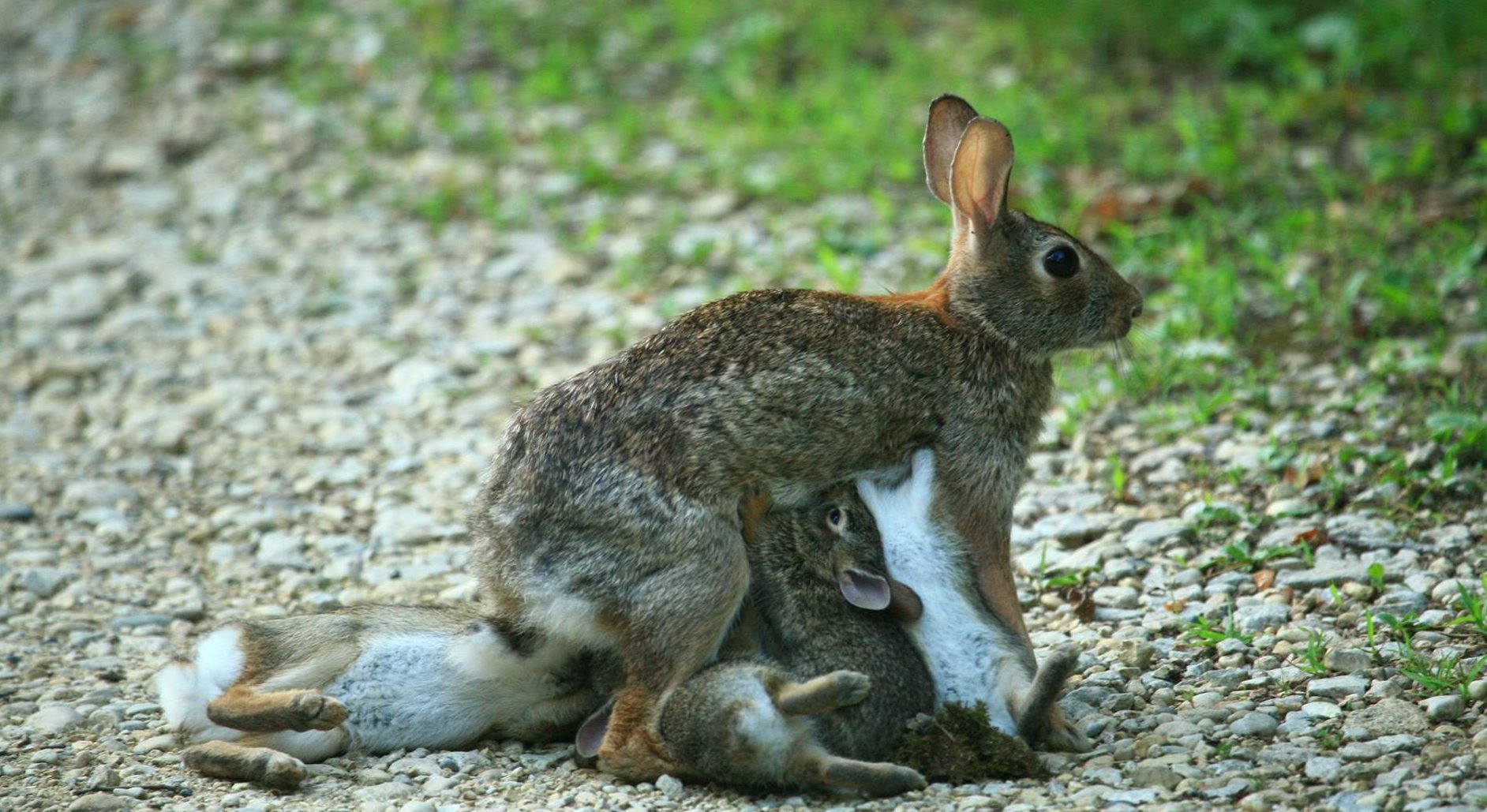
Rabbit giving birth for the first time can be a nerve-wracking experience for any rabbit owner. However, understanding the process and knowing what to expect can help ensure a smoother birthing process for both the mother and the kits.
Rabbits’ gestation period is typically between 28 and 31 days, and the mother may start showing signs of labor two or three days before the actual birth. These signs include restlessness, nesting behavior, and a decrease in appetite.
When the mother is ready to give birth, she will begin to pull fur from her chest and belly to create a nest for the kits. The actual birthing process usually takes between six and eight hours, and each kit is usually born within a few minutes of each other. After each kit is born, the mother will lick them to encourage them to breathe and to stimulate circulation. The kits will stay in the nest for the first few weeks of their lives.
It is important to give the mother and her kits privacy during this time. While you may be tempted to check on them, it is best to do so only sparingly and with minimal disruption. If you must check on them, make sure to be gentle and quiet.
It is also important to provide the mother with plenty of food and water during this time, as she will be burning a lot of energy to care for her kits.
Once the mother has given birth and is back to her normal routine, it is important to pay close attention to the kits. Make sure they are eating, drinking, and pooping normally, and watch for any signs of illness or injury.
Finally, it is important to provide plenty of hiding places for the kits to ensure their safety. This will help them to feel secure and comfortable in their environment.
What to Do After Rabbit Gives Birth?
After your rabbit has given birth, it is important to provide her with plenty of food and water, as well as a quiet and comfortable place to rest. It is also important to monitor the kits for any signs of illness or injury, and to provide them with plenty of hiding places to ensure their safety. Finally, it is essential to give the mother and her kits privacy during the first few weeks of their lives.
What to do After Rabbit Gives Birth
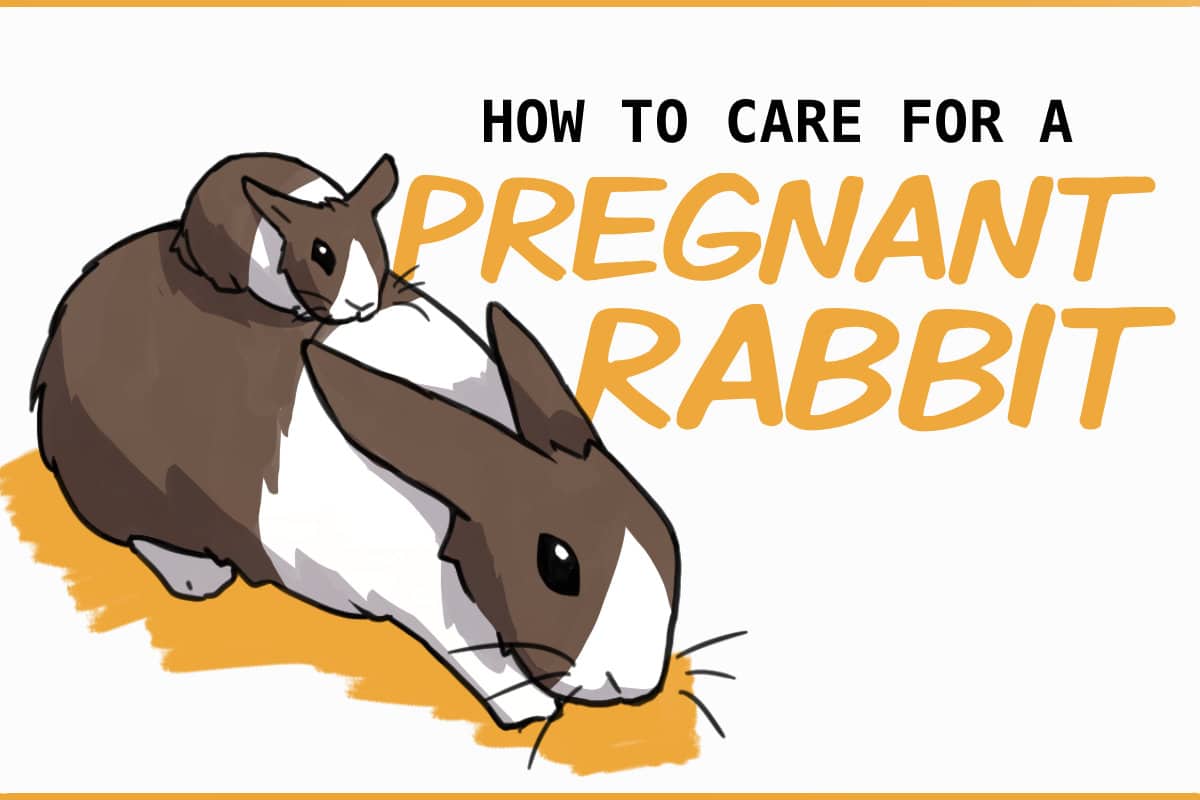
After a rabbit baby birth, it is important to keep the doe and her litter safe. Here are some steps you should take:
- Keep the doe and her litter in a quiet, warm, draft-free area. Make sure the area is away from other animals and any loud noises.
- Check the mother and babies at least twice a day to make sure they are healthy and doing well.
- Make sure the doe has plenty of hay and fresh water.
- Clean the nest box daily to prevent the spread of disease.
- Give the doe a high-quality diet to ensure she has enough nutrition during lactation.
- If the doe is not nursing the litter, provide them with a bottle or syringe filled with a commercial kitten or puppy milk replacement formula.
- Be aware of any signs of illness in the litter, such as diarrhea, discharge, or listlessness.
- If you notice any signs of illness, contact your veterinarian right away.
It is important to monitor the doe and her litter for the first few weeks after rabbit baby birth. Make sure they have plenty of food and water, and that the mother is caring for her babies. If any problems arise, contact your veterinarian immediately.
Rabbit Baby Birth
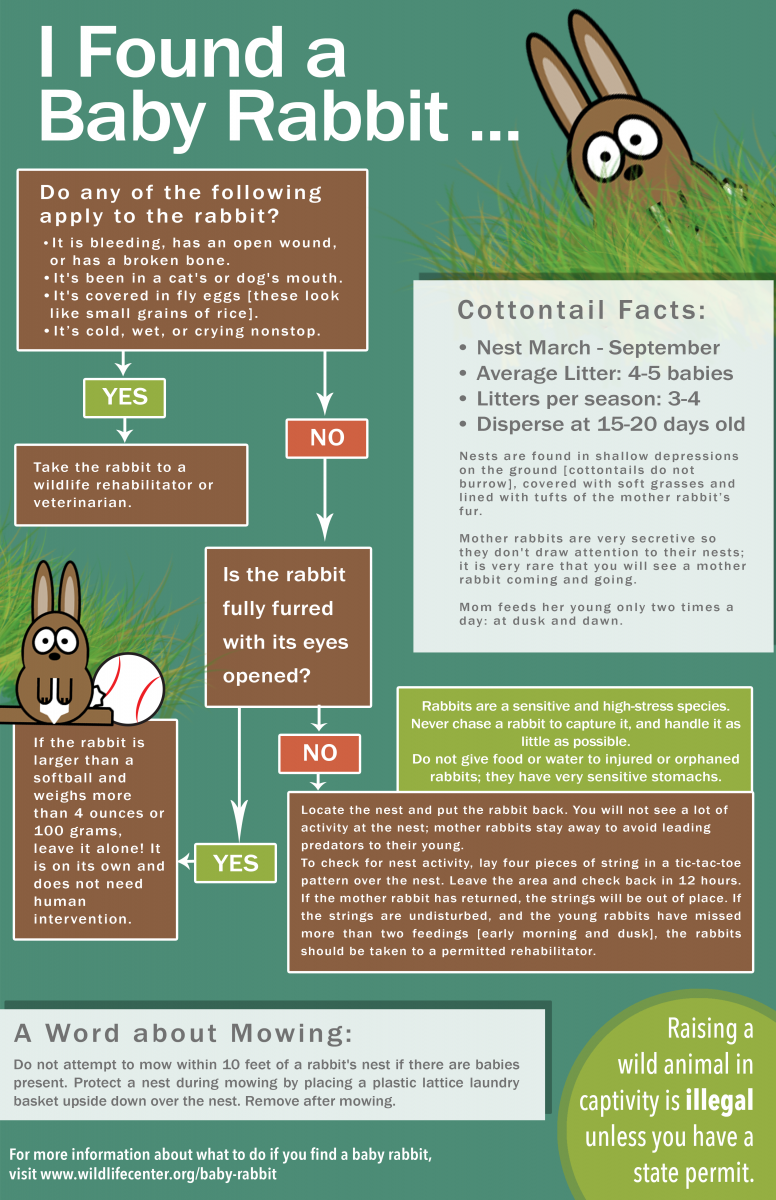
Rabbits produce litters of between 1-14 kits (baby rabbits). Gestation is usually around 28-31 days, and the average litter size is 4 to 8 kits. It is common for the mother rabbit to have her first litter at around 4 months old.
When the kits are born, they are furless and blind, and they weigh between 0.2-0.5 ounces. They will continue to grow very quickly, and can be weaned when they are 6 weeks old.
The mother will take care of her kits, and should be left alone during this time to ensure the best health for her and her young. She should be provided with a safe and comfortable nesting box, fresh water and hay, and a diet of fresh vegetables.
My rabbit only had one baby, but she was a very protective and attentive mother, providing her with everything she needed to raise a healthy and happy kit.
My Rabbit Only Had One Baby
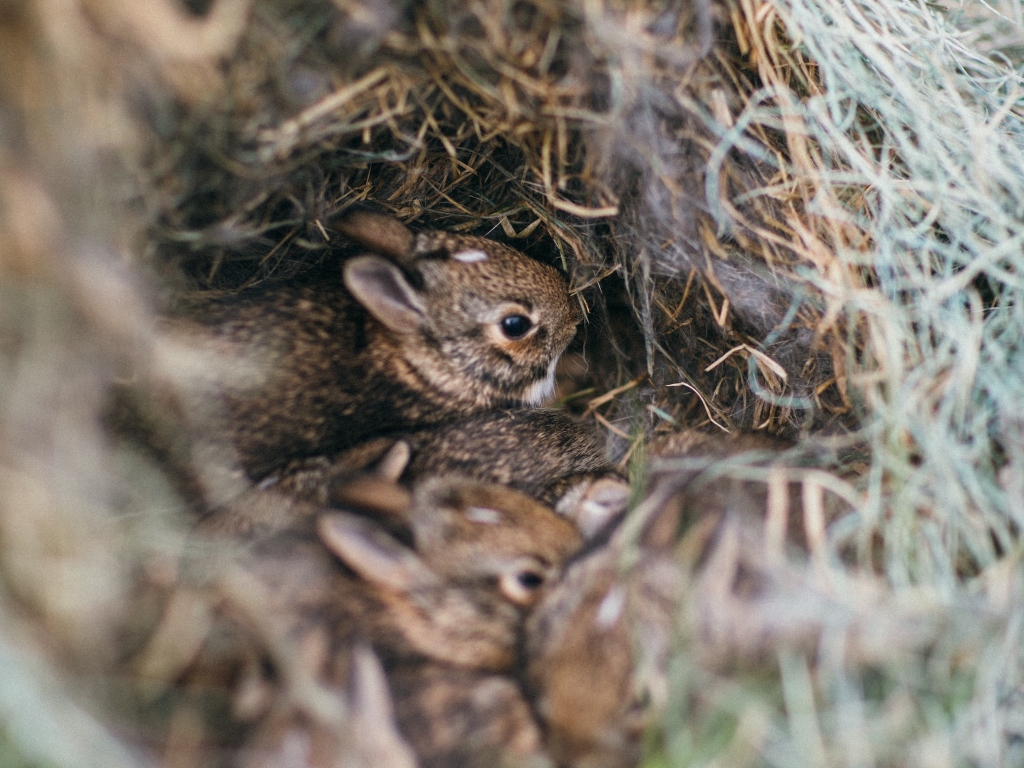
A singleton birth is when a doe gives birth to one kit. This is not uncommon and can happen for a variety of reasons. It could be due to genetic abnormalities, or it could be due to the doe being too young or too old to safely carry more than one kit. It is important to watch the doe’s behavior closely and monitor her health so that any issues can be addressed immediately.
What Time of Day Do Rabbits Give Birth?
Rabbits give birth usually at night, usually around midnight. This is because rabbits are nocturnal animals, and their bodies are programmed to give birth during the night. It is important to keep a close eye on the doe during the night, and to be prepared to take her to the vet if necessary.
| Giving Birth to One Kit | Giving Birth to Multiple Kits |
|---|---|
| The doe may be too young or old to safely carry more than one kit. | The doe should be monitored closely for any signs of distress. |
| It could be due to genetic abnormalities. | The doe may need more food or water. |
| Watch the doe’s behavior closely and monitor her health. | It is important to be prepared to take the doe to the vet if necessary. |
Regardless of how many kits the doe has, it is important to provide her with a safe and secure environment, where she can rest and recover from her labor. The doe should also be monitored closely for any signs of distress, such as lack of movement or refusal to eat or drink. If the doe has multiple kits, she may need more food or water, so it is important to make sure she has access to these resources. Additionally, both singleton and multiple births should be monitored closely for any signs of illness or infection, as these can be fatal for the newborn kits.
What Time of Day do Rabbits Give Birth
Rabbits can give birth anytime during the day, though they typically give birth during the night. The process of giving birth is called kindling, and it can take anywhere from an hour to several hours. Rabbits can have several litters a year, and each litter may contain as few as one or as many as twelve babies.
How Long Does It Take for Rabbits to Give Birth?
The length of time that it takes for a rabbit to give birth depends on the size of the litter and the health of the mother. Generally, the larger the litter, the longer it takes for the mother rabbit to give birth. Rabbits in good health can give birth quickly, while those in poor health may take longer. On average, most rabbits will give birth within a few hours.
How Long Does it Take For Rabbits To Give Birth
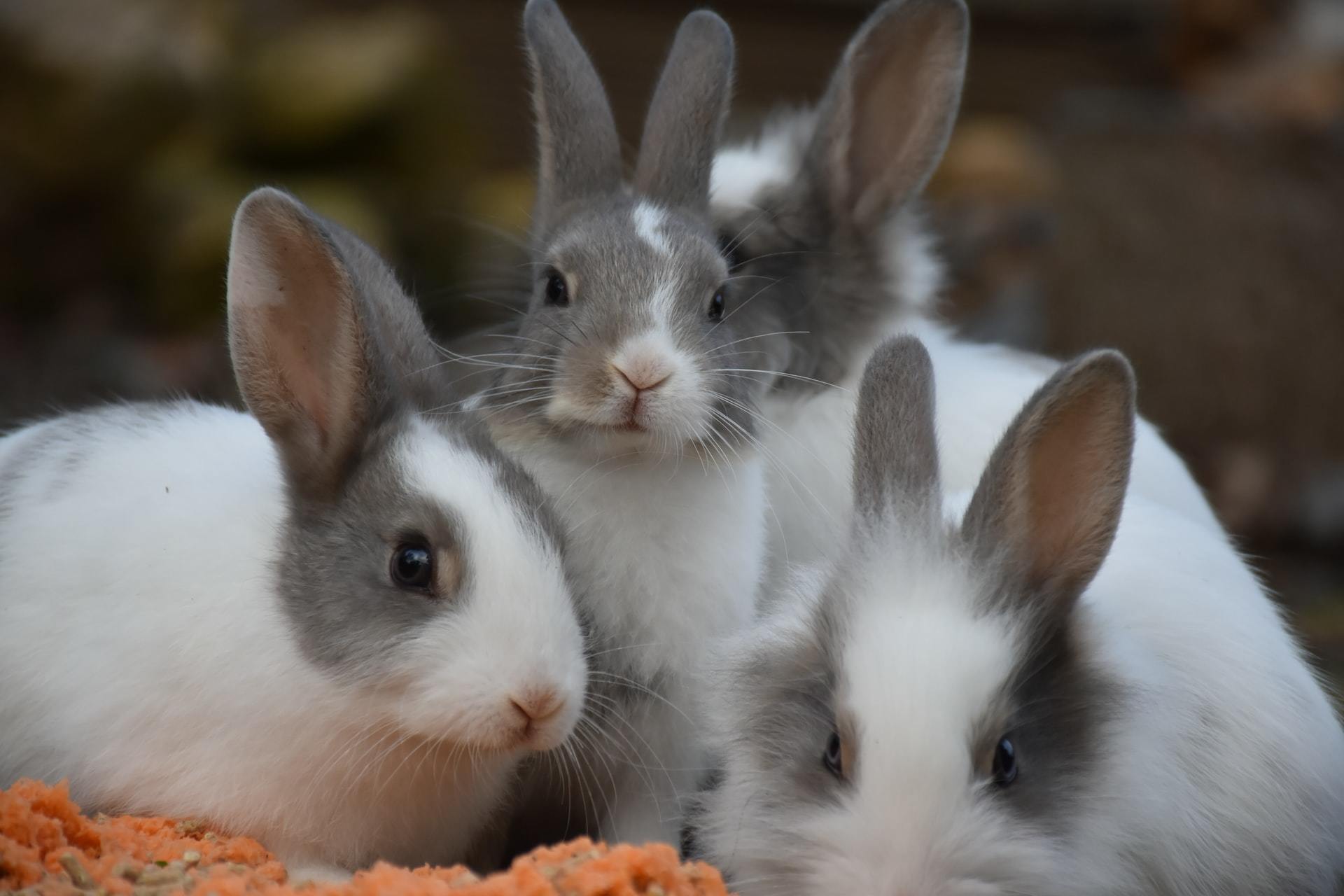
Rabbits typically give birth after 28 to 31 days of gestation. The average litter size is four to five kits, but litters can range from one to twelve kits.
Rabbits can have multiple litters in a year, and some female rabbits can even become pregnant again within hours of giving birth.
When Do Rabbits Start Nesting?
Female rabbits usually start to build their nests a few days prior to giving birth. They select a secluded spot, such as in a burrow or in dense vegetation, and line the nest with fur they have plucked from their own body.
What Happens During Birthing?
Rabbits give birth in one sitting, usually lasting between 10 and 30 minutes. All the kits are born within a short period of time.
- The kits are born with their eyes closed and are completely helpless.
- The mother rabbit will lick the kits to stimulate them and to clean them.
- The kits will feed from their mother’s milk within the first 24 hours.
- The kits will open their eyes at 10 days old.
- Kits become independent at 8 to 10 weeks old.
Do Rabbits Take Care Of Their Kits?
Yes, mother rabbits are very devoted to their kits. They will feed them and keep them warm, as well as protect them from predators. The mother rabbit will also groom the kits to keep them clean and healthy.
When do Rabbits Start Nesting?
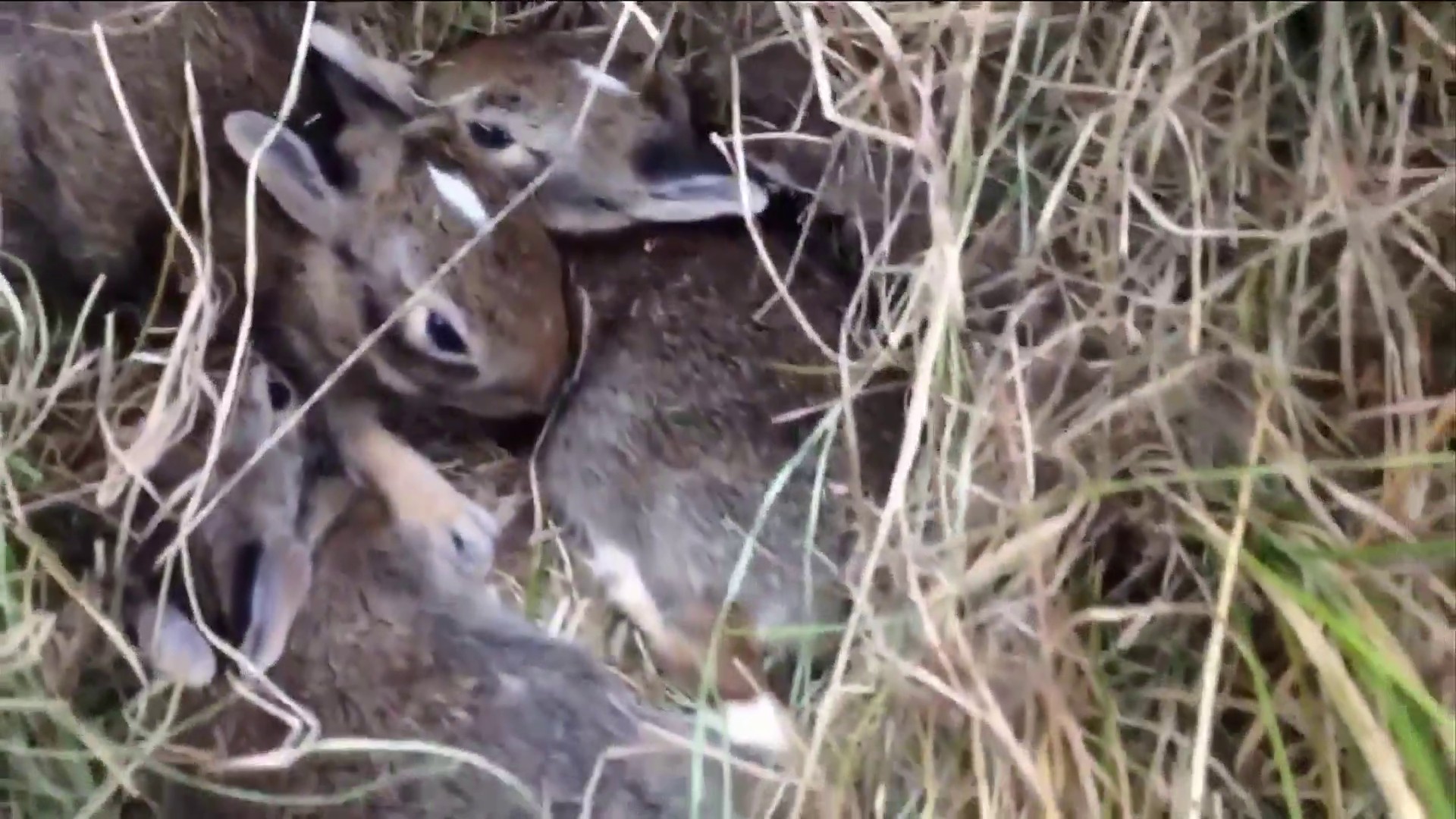
Rabbits begin nesting preparations when they are between 28-35 days pregnant. During this period, they will collect soft materials such as hay and fur for insulating the nest. The mother rabbit will also dig a shallow depression in the ground or line a shallow bowl with fur and hay. The nesting period can last anywhere from 1-2 weeks.
It is important to note that rabbits have a unique way of giving birth, which is different from other animals. This process is called kindling, and it occurs when the mother rabbit releases the babies from the womb in a series of contractions. The mother rabbit will then break open the amniotic sacs and lick her babies to stimulate them to breathe.
Once the babies are born, the mother rabbit will continue to care for them by providing them with milk and warmth. She will also groom them and keep them safe from potential predators. The mother rabbit will then move her babies to a new nesting location every few days to protect them from danger.
What is it Called When a Rabbit Gives Birth?
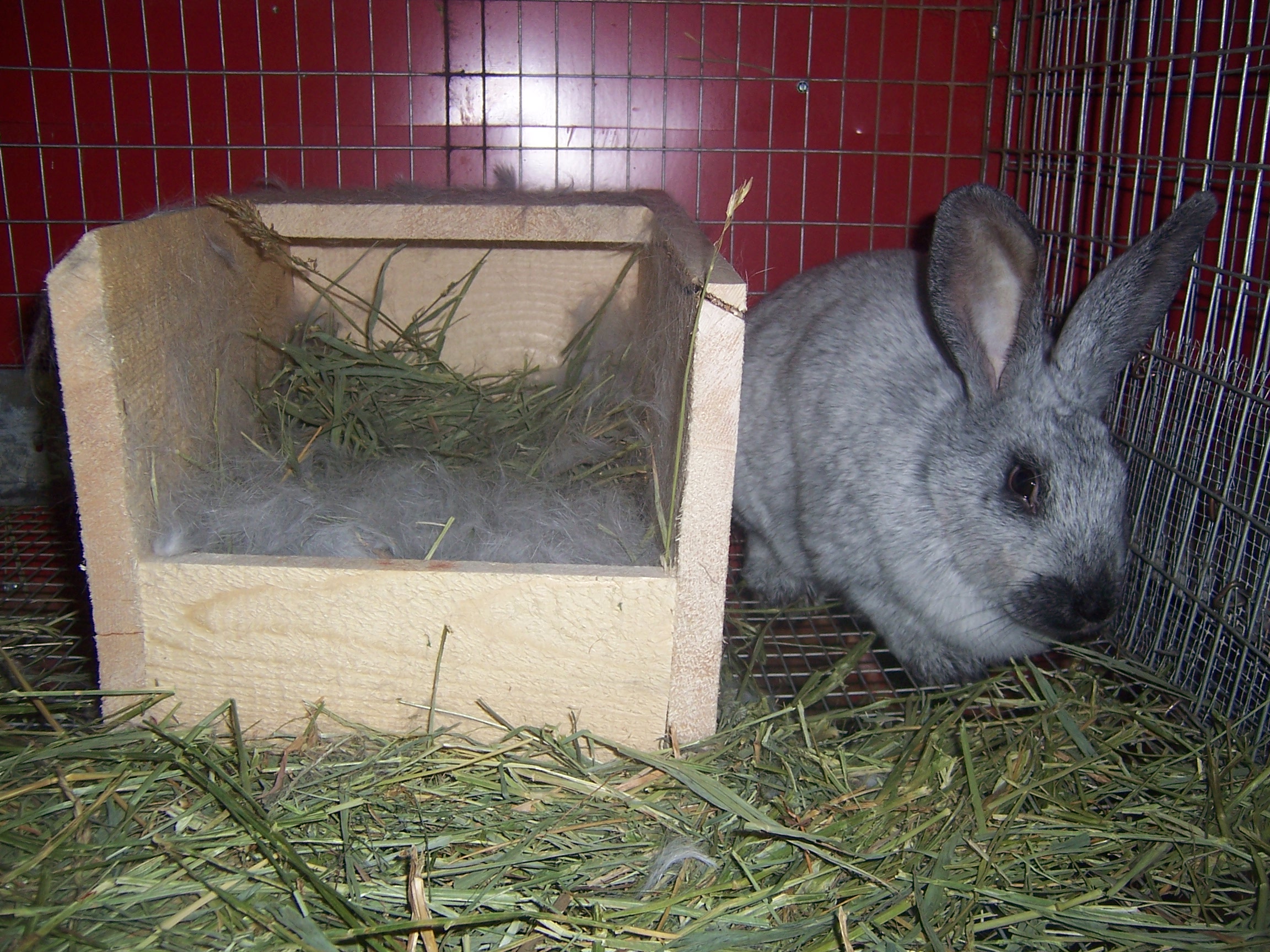
When a rabbit is ready to give birth, it is referred to as a “kindling”. This is due to the fact that rabbits give birth to multiple babies at a time, much like a litter of kittens. The babies are called “kits”.
Rabbit Giving Birth for the First Time
If your rabbit is giving birth for the first time, it is important to provide her with a quiet and safe environment. Keep the rabbit in a secluded area and provide her with fresh water and hay. You may also want to provide her with a nesting box and some soft bedding material.
What to Do After a Rabbit Gives Birth
Once the kindling has occurred, it is important to check on the mother and kits periodically to ensure that everyone is safe and healthy. It is also important to make sure that the mother is not overly stressed. If she is, move her to a quieter, more secure environment.
My Rabbit Only Had One Baby
It is not uncommon for a rabbit to only give birth to one kit. This is perfectly normal and is nothing to worry about.
What Time of Day Do Rabbits Give Birth?
Rabbits typically give birth at night or in the early morning hours. This is due to the fact that it is the safest time of day for the mother and kits.
How Long Does it Take for Rabbits to Give Birth?
The birthing process usually takes between one and three hours. The mother will usually give birth to all of the kits within a few hours.
When Do Rabbits Start Nesting?
Rabbits will typically start nesting a few days before they are due to give birth. This is done in order to create a safe and comfortable environment for the mother and kits.
How Long Do Rabbits Carry Babies?
Rabbits typically carry their babies for about 30 days before they are born. During this time the mother will start to build a nest for the kits.
In conclusion, a rabbit giving birth is referred to as a “kindling” and the babies are called “kits”. It is important to provide the mother with a safe and secure environment for the kindling to occur. The birthing process typically takes between one and three hours and it is not uncommon for a rabbit to only give birth to one kit. Rabbits typically give birth at night or in the early morning hours and they carry their babies for about 30 days before they are born.
How Long Do Rabbits Carry Babies?
Rabbits are able to carry their young for approximately 30 days before giving birth. During this time, the mother rabbit will eat more, groom herself more, and may start to build a nest. The mother rabbit will also start to pull out fur from her chest and stomach area to line the nest.
Once the baby rabbits are born, they are called “kits” and are able to move and eat on their own. The mother rabbit will feed them milk from her body and will stay with them until they are old enough to live on their own. This can take anywhere from 8-10 weeks.
Questions to Consider:
- What should you do if your rabbit is giving birth for the first time?
- What should you do after your rabbit gives birth?
- What time of day do rabbits usually give birth?
- How long does it take for rabbits to give birth?
- When do rabbits start nesting?
- What is it called when a rabbit gives birth?
It is important to remember that all rabbits are different so the time it takes for them to give birth can vary. If you have any questions or concerns about your rabbit’s pregnancy, it is important to consult with a vet as soon as possible.
Frequently Asked Questions
How Many Babies Does a Rabbit Typically Give Birth To?
Rabbits typically give birth to litters of 4-12 young, known as ‘kittens’ or ‘kits’. Rabbits can have multiple litters per year, with a gestation period of only 28-31 days. The size of the litter can vary significantly depending on the breed, age and health of the mother.
How Long Does it Take for a Rabbit to Give Birth?
Rabbits typically give birth to litters of up to 10-12 kits after a gestation period of 28-31 days. Once labor begins, the entire process can take anywhere from a few hours to a full day. Birth is usually complete when the last kit is born.
What Signs Indicate That a Rabbit is About to Give Birth?
-
1. Nest Building: One of the most common signs that a rabbit is about to give birth is that the doe will start to build a nest. She will gather materials such as hay, fur, and soft cloth and make a nest in a corner of the cage.
2. Loss of Appetite: As the due date draws near, the rabbit will start to lose her appetite. She may also become more aggressive and territorial.
3. Increase in Grooming: The rabbit may start to lick her fur more often as she prepares for the birth.
4. Abdominal Contractions: The doe will start to experience contractions, which may be accompanied by loud noises or panting.
5. Discharge: The doe may start to produce a clear or pinkish discharge as the due date nears.
What should be provided for a pregnant rabbit?
- A Quiet and Comfortable Place: Pregnant rabbits should be provided with a quiet and comfortable spot to give birth. Ensure the area is free from loud noises and other animals.
- Adequate Diet: Ensure the pregnant rabbit is receiving an adequate diet. This should include plenty of hay, fresh water and a balanced diet of fresh vegetables and pellets. Avoid high sugar and high-fat treats.
- Adequate Exercise: Provide the pregnant rabbit with plenty of exercise. Keep the exercise gentle and ensure the rabbit has plenty of space to move around.
- Grooming: Regularly groom the pregnant rabbit to ensure her coat is in good condition. This will help prevent any skin problems.
- Veterinary Care: Ensure the pregnant rabbit is receiving regular veterinary care. This will help to ensure the health of the rabbit and her babies.
Is it necessary to separate the mother rabbit from her babies after birth?
No, it is not necessary to separate the mother rabbit from her babies after birth. The mother rabbit will usually take care of her young. However, it is important to keep a close watch on the mother and her litter in case there are any issues. If the mother rabbit is aggressive or does not appear to be caring for her young properly, then it may be necessary to separate the mother from her litter. In this case, it is important to seek advice from a vet.
Conclusion
Rabbit baby birth is a complex process that requires patience and understanding. It’s important to ensure your rabbit is in good health and comfortable before breeding. During the birth process, it’s important to be patient and allow the rabbit to do the work. After the birth, it’s crucial to monitor the health of the mother and babies to ensure their wellbeing. With the right preparation and care, you can ensure a successful rabbit baby birth.
